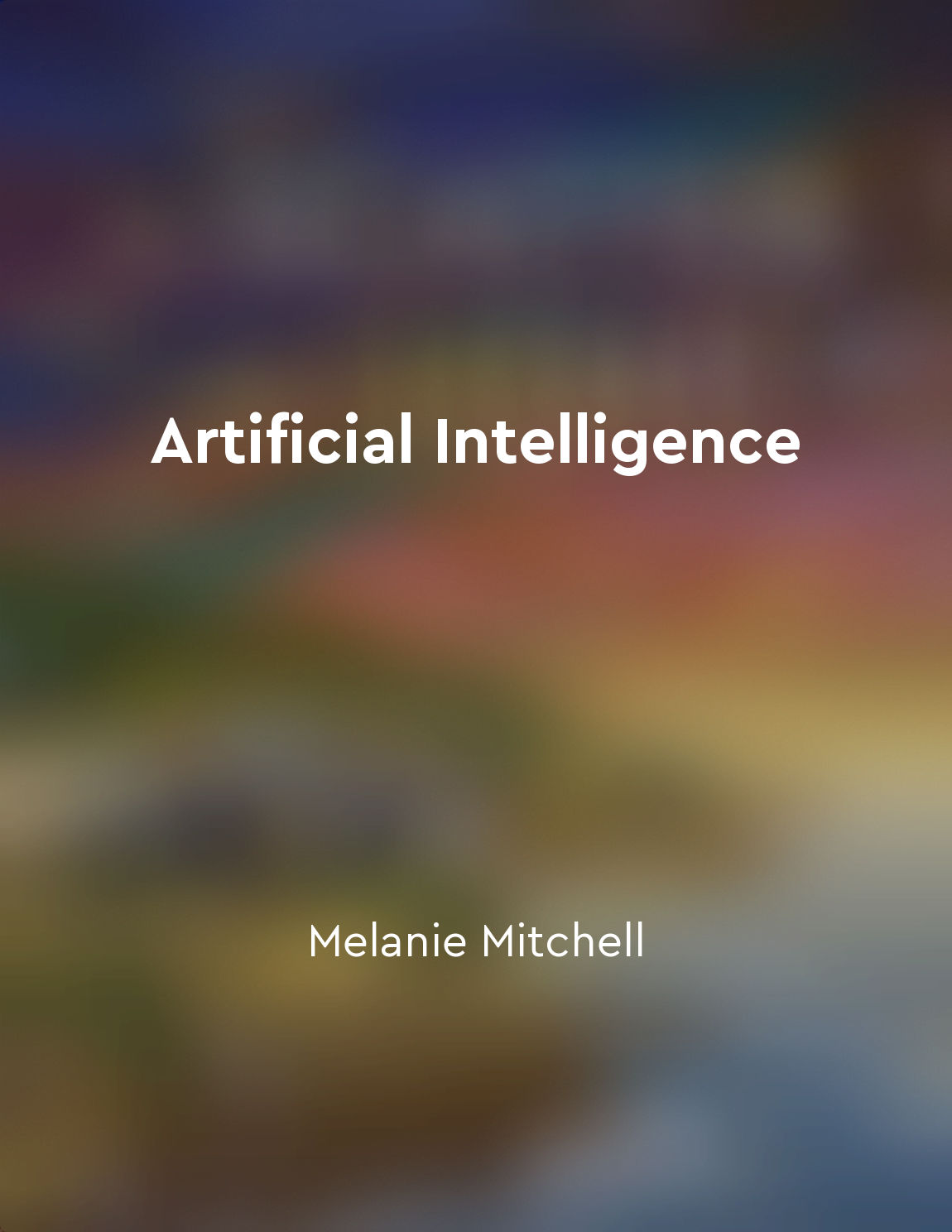Audio available in app
The concept of general intelligence remains a distant goal in AI research from "summary" of Artificial Intelligence by Melanie Mitchell
Researchers in the field of artificial intelligence have long been striving to achieve a goal that seems to be just out of reach - the creation of a machine that possesses the same level of intelligence as a human being. This elusive concept, known as general intelligence, remains a distant goal in AI research. Despite significant advancements in the field, including the development of systems that can outperform humans in specific tasks, such as playing chess or recognizing objects in images, the ability to create a machine that can truly understand and learn from the world in the same way that humans do still eludes us. One of the key challenges in achieving general intelligence lies in the complexity of the human mind. The human brain is an incredibly intricate and adaptive organ, capable of processing vast amounts of information, making complex decisions, and learning from experience. While AI systems have made tremendous strides in mimicking certain aspects of human intelligence, such as pattern recognition and language processing, they still lack the holistic understanding and flexibility that characterize human intelligence. Another obstacle to achieving general intelligence in AI is the lack of a unified theory or framework for understanding intelligence itself. While researchers have made progress in developing specialized algorithms and techniques for specific tasks, such as machine learning and deep learning, these approaches often lack the broad, flexible nature of human intelligence. Unlike humans, who can apply their knowledge and skills to a wide range of tasks and scenarios, AI systems are often limited to the specific tasks for which they were designed. Furthermore, the problem of common sense knowledge presents a significant challenge to achieving general intelligence in AI. Humans possess a vast amount of implicit knowledge about the world that allows us to make sense of new situations, solve problems, and interact effectively with our environment. This common sense knowledge is often difficult to formalize and encode in AI systems, making it challenging for machines to navigate the complexities of the real world in the same way that humans can.- While significant progress has been made in the field of artificial intelligence, the concept of general intelligence remains a distant goal for researchers. The complexity of the human mind, the lack of a unified theory of intelligence, and the challenge of common sense knowledge all present significant obstacles to achieving true human-like intelligence in AI systems. Despite these challenges, researchers continue to push the boundaries of what is possible in AI, striving to unlock the secrets of general intelligence and bring us closer to creating machines that can truly understand and learn from the world.


